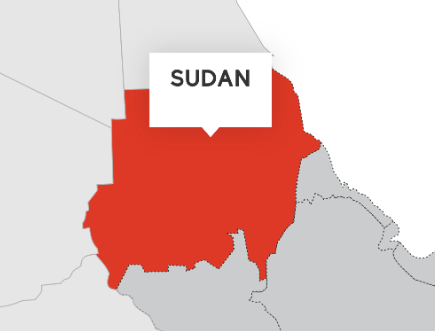The Independent International Fact-Finding Mission (FFM) for Sudan will continue its work for at least a year, the UN Human Rights Council decided today. Through a resolution adopted by a broader margin (23 states in favour, 12 against) than last year, when the UN’s top human rights body created the FFM (19 in favour, 16 against), the Council extended the mandate of the FFM. This will allow the FFM to pursue its vital investigations into the crimes committed in relation to the conflict in Sudan.
“Impunity is at the heart of the current crisis and of cycles of violence in Sudan. The absence of accountability for atrocities committed in the past has encouraged parties to the current conflict to believe that crimes against civilians would go unpunished,” said Hassan Shire, Executive Director, DefendDefenders. “The FFM is key to prove this cynical calculation wrong and hold perpetrators to account.”
The resolution adopted today (A/HRC/57/L.22) condemns a wide range of human rights violations and abuses and violations of the laws of war. It expresses grave concern at the humanitarian crisis, including famine conditions at Zamzam camp and the risk of famine for millions of Sudanese. It condemns the renewal of attacks by the Rapid Support Forces in El Fasher, North Darfur, and the shelling of displacement camps, and reiterates the Council’s call for an immediate and complete ceasefire. It also recognises that impunity for violations encourages their recurrence and is a fundamental obstacle to sustainable peace.
“The FFM is the only international mechanism with the mandate, expertise and experience to independently investigate and report on the violations committed,” said Nicolas Agostini, DefendDefenders’ Representative to the UN. “There is no alternative to its collection and preservation of evidence functions and to its ability to identify and expose those responsible.”
18 months after the start of the current conflict, on 15 April 2023, violations of international humanitarian law and human rights violations and abuses continue to be committed by all parties to the conflict, namely the Sudanese Armed Forces (SAF) and the Rapid Support Forces (RSF) and their respective allies. Some of these violations constitute war crimes and crimes against humanity, as they involve targeted and indiscriminate attacks, including airstrikes, on civilians and on hospitals and schools, and patterns of arbitrary detention, torture, enforced disappearances, and rape, gang-rape and other forms of sexual violence, including sexual slavery. In Darfur and elsewhere, the RSF and affiliated Arab militias have burned houses and villages and committed ethnic-based atrocities against Massalit and other non-Arab communities.
In its first report to the Council, presented in September 2024, the FFM found that both the SAF and the RSF were responsible for “patterns of large-scale violations,” including war crimes, and that it had “reasonable grounds to believe” that, in addition, “acts committed by the RSF and its allied militias [amounted to] crimes against humanity.”
The resolution adopted today, like the October 2023 resolution that established the FFM, resolution 54/2, highlights the complementarity between the efforts of the FFM and those of other actors, including regional investigations. These include a joint Fact-Finding Mission of the African Commission on Human and Peoples’ Rights (ACHPR) and the African Union (AU) Peace and Security Council. The resolution also refers to the investigation by the Office of the Prosecutor of the International Criminal Court (ICC) into international crimes committed in Darfur.
In May 2024, 80 Sudanese, African, and international NGOs called for the extension of the FFM’s mandate, arguing that both the situation in Sudan and the UN’s regular budget liquidity crisis, which caused delays in the operationalisation of the FFM, called for further investigations beyond the initial mandate year of the FFM. In September 2023, 120 NGOs had urged the Council to create an independent investigative mechanism.
Right before the Council’s 57th regular session, DefendDefenders, Amnesty International and Human Rights Watch released a Q&A document addressing all issues relating to the FFM’s extension. It highlighted, in particular, why the SAF-led National Commission of Investigation is not a credible alternative to the independent mandate of the FFM to document crimes by all parties to the conflict and to advance accountability for grave violations.
The Human Rights Council is holding its 57th regular session from 9 September to 11 October 2024. It is expected to adopt almost 40 resolutions covering both thematic issues (including racism and human rights on the internet) and country situations (including, in addition to Sudan: Afghanistan, Burundi, Sri Lanka, Syria, Russia and Venezuela). The Council will hear an oral update of the FFM at its 59th session (June 2025) and consider the next report of the FFM at its 60th session (September 2025). Resolution 57/L.22 also requests the FFM to present its next report to the UN General Assembly at its 80th session, in October 2025.
For more information, please contact:
Estella Kabachwezi
Advocacy, Research and Communications Manager, DefendDefenders
[email protected] or +256 782 360 460 (English)
Nicolas Agostini
Representative to the United Nations for DefendDefenders
[email protected] or +41 79 813 49 91 (English and French)

